How to Maintain a Clean and Safe Pool
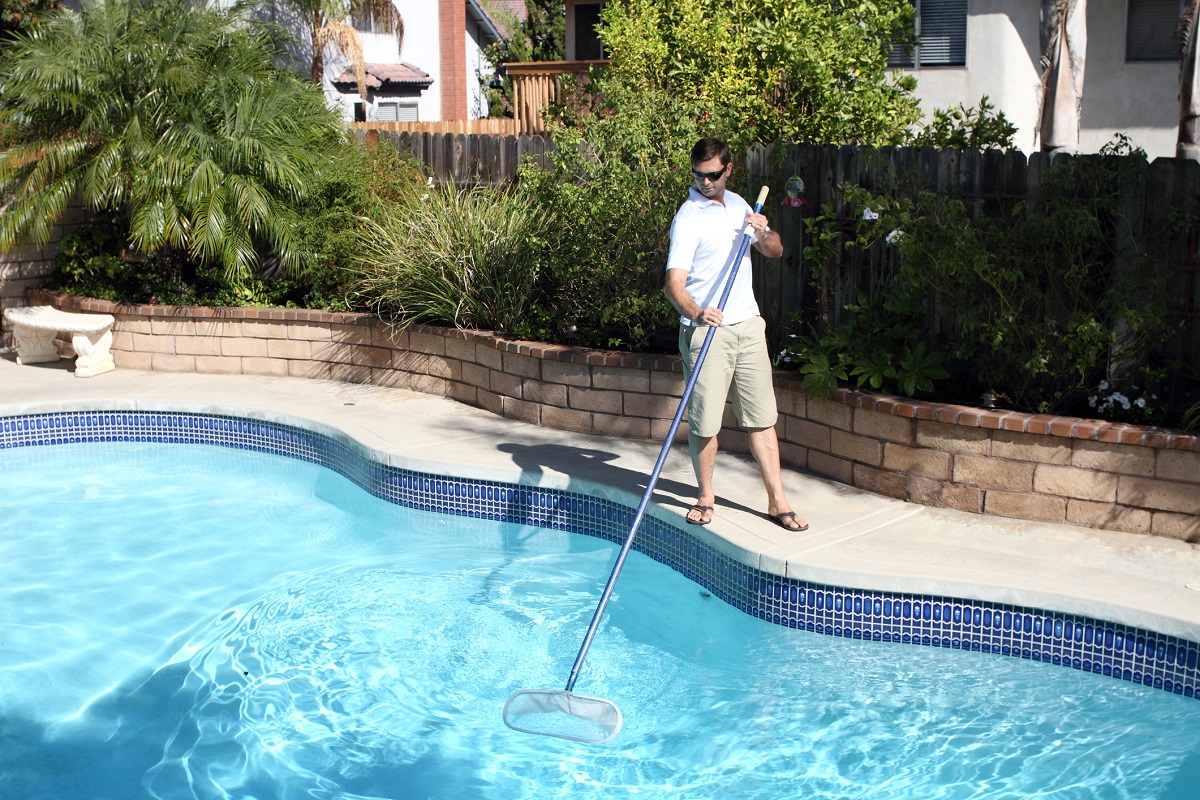
Do you have a pool at home? Here’s how to maintain a pool that’s sparkling clean and safe for you and your family!

Public aquatic venues in different parts of the country have opened despite the ongoing threat presented by Covid-19. Why? There is no evidence that the virus that causes Covid-19 can be spread to people through the water in pools, hot tubs, or water/spray parks. Additionally, proper management of these venues, including the disinfection of the water with chlorine or bromine, should inactivate the virus if it is present.
This is good news for aquatic venue operators and pool owners as well as people who enjoy cooling off in the water to beat the heat and relax without worrying about the potential for infection of a deadly virus. Pool operators and owners, however, are advised to take steps to ensure the health and safety of those who will be using their facilities and pools. These include ensuring water quality and safety in addition to following approved guidelines on cleaning and disinfecting community facilities. Apart from health and safety precautions, pools should also undergo regular maintenance and address any small problems in a timely manner. This will save pool owners’ and operators’ time and money.
Pool Maintenance
Pool owners and operators can keep their facility clean using three simple and practical tips:
Skim Regularly
Pools should be skimmed regularly, even on the days the pool is not being used. How often? It depends on how much debris normally falls into your pool. Pool owners should check the skimmer basket every time the leaf rake is used. Don’t let it overflow or sit for hours full to the top with debris as it will lead to poor water circulation, giving algae an opportunity to grow.
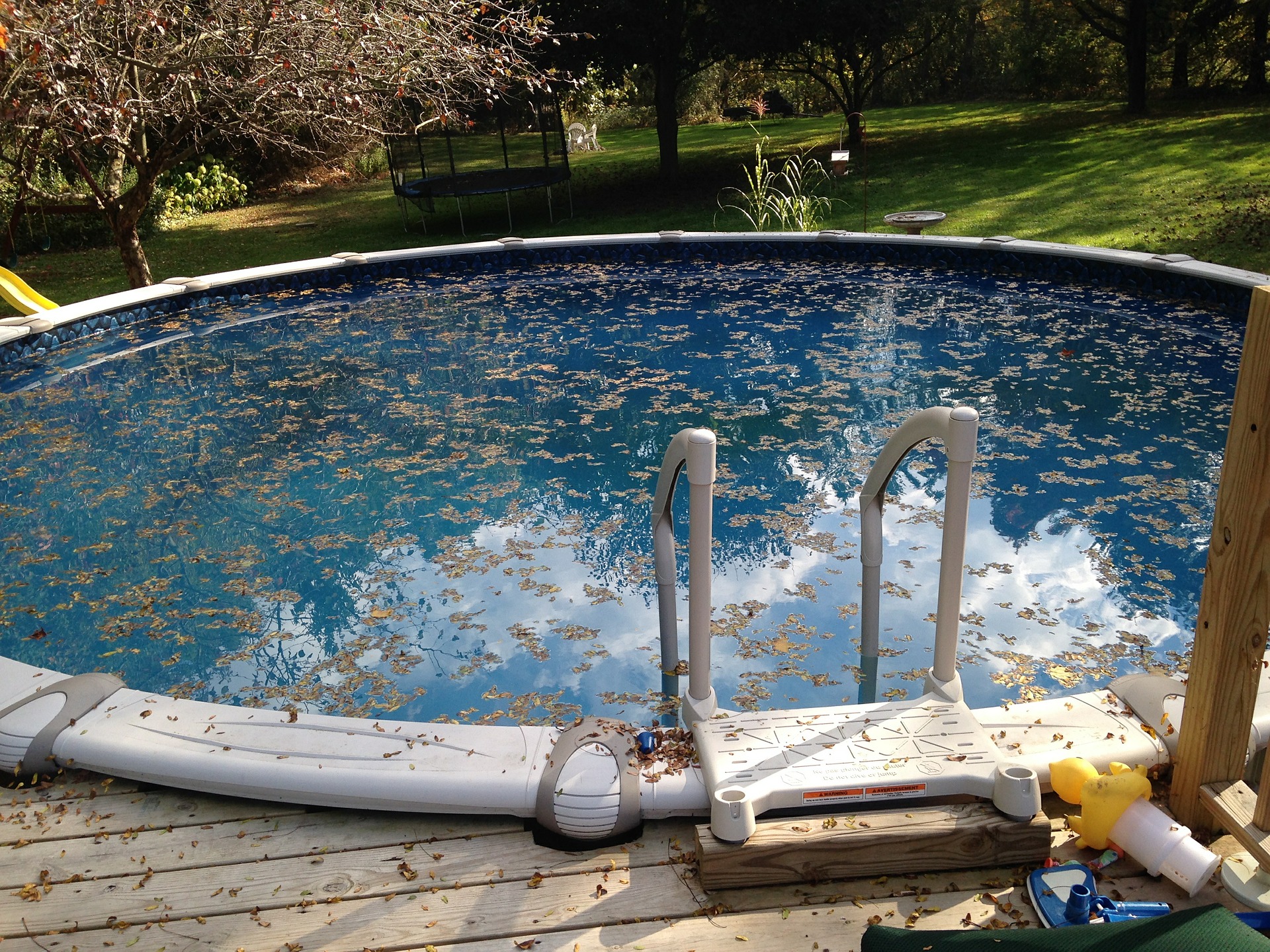
Brush and Vacuum
Some pools only need weekly vacuuming while others have to be done every other day. However, how often the pool will have to be vacuumed and its sides brushed depends on how often the pool is used. If leaves or other debris can be seen at the bottom of the pool, it also indicates that it needs to be vacuumed.
Test the Water
Pool water needs to be tested at least two to three times per week. Although if it has been used frequently, the water should be tested every day. Pools that are used more frequently are more subject to chemical imbalance than pools that are used less often.
Likewise, suntan lotion, tanners, and other chemicals increase the chemical levels in the pool water when more people use the facility. Pool water can be tested through measuring its acidity and basicity or pH levels; the amount of dissolved calcium in the pool water; maintaining total alkalinity of 120-150 parts per million (ppm); and the presence of copper, iron, and manganese.
pH levels
The pH level of the swimming pool water is acidic, corrosion of pool surfaces and equipment can occur. On the other hand, if the pH level is basic, the pool can be at risk for scaling, deposits, and cloudy water. It is ideal to maintain a pH of around 7.5. A chemical increaser or decreaser can be used to adjust the pool’s levels as needed.
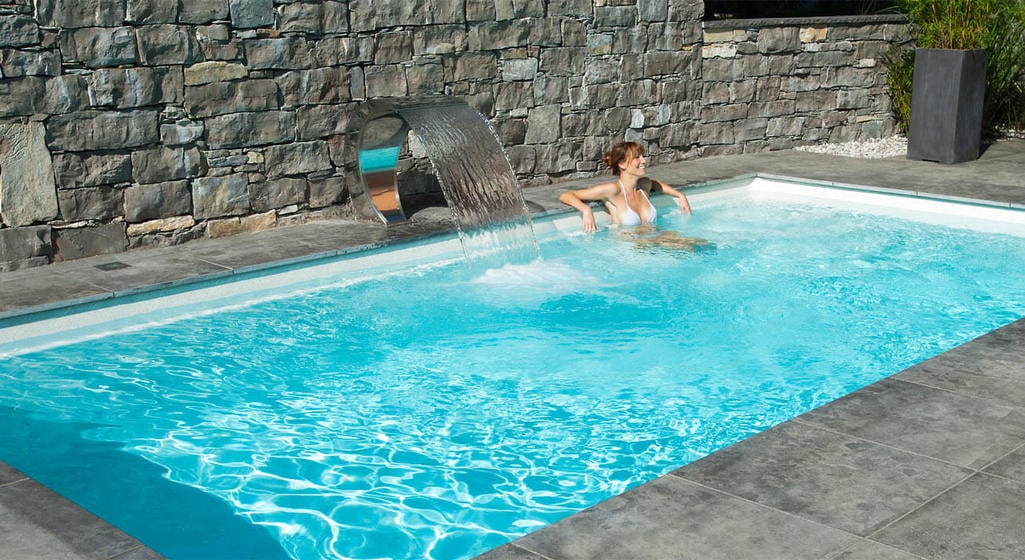
Calcium Hardness
Low calcium hardness levels will cause plaster etching and shorten the life of vinyl liners, while high calcium levels will result in calcium deposits on the pool surfaces as well as equipment. The proper range for calcium hardness in pool water is 200 to 250 ppm for concrete pools and 175 to 225 ppm for vinyl pools.
Total Alkalinity
Apart from keeping a stable pH level, the total alkalinity of the swimming pool should be maintained at 120 to 150 ppm. Low total alkalinity will not only cause pH bounce and fluctuations but also corrosion and staining. High total alkalinity, on the other hand, will result in cloudy water and scaling and will cause the pH to fluctuate.
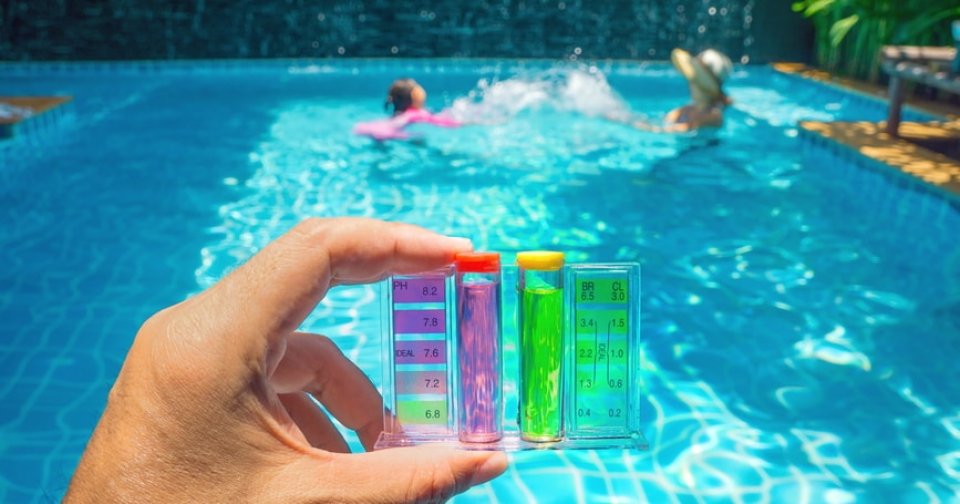
Metals
The presence of copper, iron, and manganese, which are the most common types of metals that appear in pool water, can stain the pool’s surface and discolor the water. Stain and scale remover can be used regularly if the aforementioned metals are present in the pool.
Pool Pumps
Apart from testing the water, skimming, brushing and vacuuming, pools can be cleaned by installing a pump which will keep the swimming pool water moving, pushing it through the filter to remove dirt, leaves, and debris. Apart from not requiring a lot of work to use, the pool pump will keep the water clean and clear and help prevent labor-intensive maintenance later on. While taking care of the swimming pool is a must for every pool operator and owner, health safety precautions should still be considered, especially since the threat of the pandemic is not yet over.
Handrails, lounge chairs, tabletops, door handles, surfaces of restrooms, and other shared objects should be cleaned and disinfected daily. Hand hygiene and respiratory etiquette should be encouraged and adequate supplies such as soap, hand sanitizer, alcohol, paper towels, tissues, and no-touch trash cans should be easily accessible.




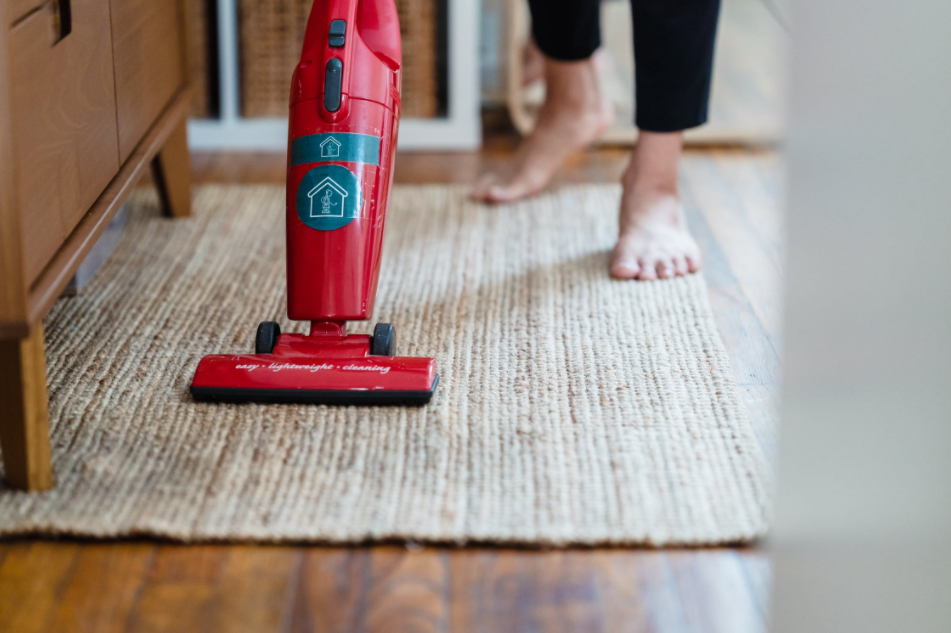


Leave a Comment